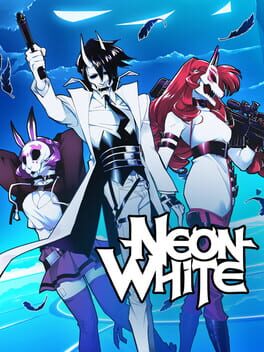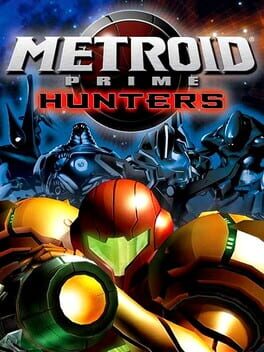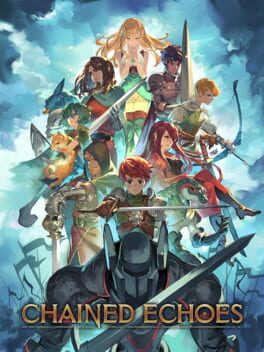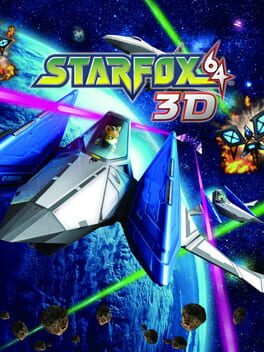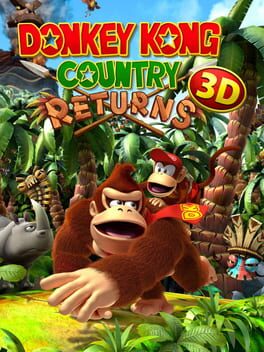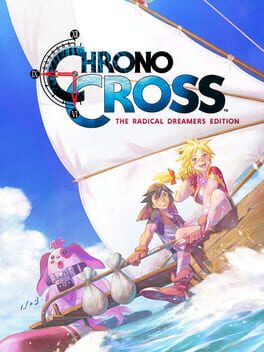ann3lid
2022
Neon White feels like a spiritual successor to Mirror’s Edge with the narrative sensibilities of a game like Catherine. As “sinners” you’ve been tasked with slaying demons to keep heaven safe for the true believers. If you slay enough of them, and quickly, you may even earn a space for yourself at the pearly gates.
The gameplay is a mixture between parkour simulator, FPS, and deck builder and it all works brilliantly. In a bid to raise your neon score, you are encouraged to beat each level as quickly as possible. At first, this is simply a matter of execution. Follow the obvious path (marked by brightly coloured platforms and don’t miss your shots. But, as you beat your score and earn yourself a medal, you’re tempted to try again… Upon returning, there is a gift hidden in the level, but it can only be found through thorough exploration. Now you can compete against your ghost and improve your score, then you see hints for alternate, faster routes through levels, then the leaderboards open up… The soul cards (which provide you with guns) function in much the same way. You begin with a handgun/double jump, but eventually graduate to a rocket launcher/zip line which requires much greater precision to handle.
This is a game about speedrunning and the mechanics take the daunting goal of being THE fastest and break it down into tiny, incremental steps. Without meaning to, you’ll find yourself thinking and performing like a speedrunner until you are the one driven to get a run that’s just a few milliseconds quicker than the last.
The backdrop for this frantic gameplay is a fantastic OST written by Machine Girl that is one of the best I’ve heard in years. It’s catchy, it matches the aesthetic of the game perfectly, and most of the tracks are great to listen to on their own. I think this is Machine Girl’s first game OST and I sincerely hope there are more to come.
The narrative of the game is often cringey, creepy, or weirdly kinky and I actively disliked most of these sections, but the setup for the game’s events was interesting enough to keep me engaged. Despite these negatives, the setting itself is pretty evocative and I found the interplay between the Angels and the Neons to be quite endearing. The narrative also feeds back into the gameplay by functioning as a way to unlock unique side missions for each of the main characters. Although this doesn’t excuse the dialogue, it’s no worse than the average JRPG most of the time.
If you enjoy precision platforming, have fond memories of Mirror’s Edge, or have even a passing interest in speedrunning, play this game! I can’t wait to see what this team does next because Neon White feels like one of the most unique gaming experiences I’ve had in recent memory.
The gameplay is a mixture between parkour simulator, FPS, and deck builder and it all works brilliantly. In a bid to raise your neon score, you are encouraged to beat each level as quickly as possible. At first, this is simply a matter of execution. Follow the obvious path (marked by brightly coloured platforms and don’t miss your shots. But, as you beat your score and earn yourself a medal, you’re tempted to try again… Upon returning, there is a gift hidden in the level, but it can only be found through thorough exploration. Now you can compete against your ghost and improve your score, then you see hints for alternate, faster routes through levels, then the leaderboards open up… The soul cards (which provide you with guns) function in much the same way. You begin with a handgun/double jump, but eventually graduate to a rocket launcher/zip line which requires much greater precision to handle.
This is a game about speedrunning and the mechanics take the daunting goal of being THE fastest and break it down into tiny, incremental steps. Without meaning to, you’ll find yourself thinking and performing like a speedrunner until you are the one driven to get a run that’s just a few milliseconds quicker than the last.
The backdrop for this frantic gameplay is a fantastic OST written by Machine Girl that is one of the best I’ve heard in years. It’s catchy, it matches the aesthetic of the game perfectly, and most of the tracks are great to listen to on their own. I think this is Machine Girl’s first game OST and I sincerely hope there are more to come.
The narrative of the game is often cringey, creepy, or weirdly kinky and I actively disliked most of these sections, but the setup for the game’s events was interesting enough to keep me engaged. Despite these negatives, the setting itself is pretty evocative and I found the interplay between the Angels and the Neons to be quite endearing. The narrative also feeds back into the gameplay by functioning as a way to unlock unique side missions for each of the main characters. Although this doesn’t excuse the dialogue, it’s no worse than the average JRPG most of the time.
If you enjoy precision platforming, have fond memories of Mirror’s Edge, or have even a passing interest in speedrunning, play this game! I can’t wait to see what this team does next because Neon White feels like one of the most unique gaming experiences I’ve had in recent memory.
Metroid Prime is a series known for adapting the engrossing atmosphere and puzzle-like exploration of the 2D metroid titles into a first person, 3D perspective. It’s not known for its list of successful spin-offs. However, my potentially hot take is that this is the best of those spin-offs.
Hunters was designed as a direct response to the boom in multiplayer-focused FPS titles during the mid 2000’s. Evidence of this ranges from the multiplayer focus of Hunters to the “Headshot!” text that appears in-game when you make your mark. The multiplayer focus was the main marketing draw, promising local and online deathmatches and, at the time, exciting features like voice chat. To add variety, a cast of space bounty hunters with unique weapons, abilities, and morph ball-esque forms were introduced. Unfortunately, this aspect of the game can no longer be experienced the way it was designed, but my memories of this mode are very fond. Each hunter has a unique style of play and local matches were always a blast. These character designs are really strong and it’s a shame that they haven’t been used more since!
When playing alone, the promise of this game was a stripped back, handheld metroid prime campaign. Despite the technical limitations of the system, I think this was mostly delivered on. Some rooms feel repetitive and long hallways or slow doors often mask loading times, but given the game’s 2006 release, I still find it surprising how technically competent it is. Hunters takes a level based approach by having you visit several points of interest across the Alimbic System. Each of these areas feels distinct and the music enhances the sense of atmosphere in each of them. In each area, you’re tasked with unlocking a portal to the boss, defeating said boss, and escaping in a set amount of time. It’s simple, but functional, if a little repetitive (especially when it comes to the boss fights). Throughout these levels you may come across a hunter who you’ll fight or pick up one of the hunter’s weapons. The level based approach, mixed with the hunters and their varying weaknesses to the weapons give this the flavor of a Mega Man game. The missed opportunity here was not having the hunters themselves act as the boss for each mission.
This game is not for everyone. The controls are kind of wonky and the stellar quality of other Prime titles makes it a hard recommendation. Nevertheless, this is a unique take on Metroid Prime and doesn’t get the credit it deserves from fans of the series. Even though it’s highly unlikely, a Hunters sequel with full dual stick controls, a campaign that leans into the Mega Man vibes of the original, and a fully modern online multiplayer mode is something I want desperately. If you’re interested in what Samus was up to between Metroid Prime 1 and 2, I think you’ll find a fun distraction in Metroid Prime Hunters, and a multiplayer mode begging to be revived.
Hunters was designed as a direct response to the boom in multiplayer-focused FPS titles during the mid 2000’s. Evidence of this ranges from the multiplayer focus of Hunters to the “Headshot!” text that appears in-game when you make your mark. The multiplayer focus was the main marketing draw, promising local and online deathmatches and, at the time, exciting features like voice chat. To add variety, a cast of space bounty hunters with unique weapons, abilities, and morph ball-esque forms were introduced. Unfortunately, this aspect of the game can no longer be experienced the way it was designed, but my memories of this mode are very fond. Each hunter has a unique style of play and local matches were always a blast. These character designs are really strong and it’s a shame that they haven’t been used more since!
When playing alone, the promise of this game was a stripped back, handheld metroid prime campaign. Despite the technical limitations of the system, I think this was mostly delivered on. Some rooms feel repetitive and long hallways or slow doors often mask loading times, but given the game’s 2006 release, I still find it surprising how technically competent it is. Hunters takes a level based approach by having you visit several points of interest across the Alimbic System. Each of these areas feels distinct and the music enhances the sense of atmosphere in each of them. In each area, you’re tasked with unlocking a portal to the boss, defeating said boss, and escaping in a set amount of time. It’s simple, but functional, if a little repetitive (especially when it comes to the boss fights). Throughout these levels you may come across a hunter who you’ll fight or pick up one of the hunter’s weapons. The level based approach, mixed with the hunters and their varying weaknesses to the weapons give this the flavor of a Mega Man game. The missed opportunity here was not having the hunters themselves act as the boss for each mission.
This game is not for everyone. The controls are kind of wonky and the stellar quality of other Prime titles makes it a hard recommendation. Nevertheless, this is a unique take on Metroid Prime and doesn’t get the credit it deserves from fans of the series. Even though it’s highly unlikely, a Hunters sequel with full dual stick controls, a campaign that leans into the Mega Man vibes of the original, and a fully modern online multiplayer mode is something I want desperately. If you’re interested in what Samus was up to between Metroid Prime 1 and 2, I think you’ll find a fun distraction in Metroid Prime Hunters, and a multiplayer mode begging to be revived.
A breath of fresh air for a series that was beginning to feel like it was resting on its laurels. The wonder seeds add variety to each level and the badge mechanic allows each player to tweak difficulty to their own tastes. I wish it strayed even further from staple Mario mechanics, but was a fantastic playthrough nonetheless.
2022
A really excellent retro inspired indie rpg that matches and, at times, exceeds its inspirations. I'm finding the story to be quite gripping, the characters are likeable, and I'm a fan of the Overdrive mechanic. The main downside is that the combat can feel clunky in the early game when you have less character and options to work with. Really fun for a completionist due to the built in achievement system.
2022
A really cool game that I respected more than enjoyed for most of my playthrough. Tunic is a meditation on the classic Zelda formula and a reflection on the days in which the instruction manual was necessary to understand the game. Takes inspiration from the Souls series, but I think this aspect is perhaps the weakest part of the game. The combat was fun, but never felt deep enough to justify the emphasis it recieved in the game.
2011
A port of an already fantastic platformer that adds some quality of life features to improve it even more. As a revival of the classic DKC franchise, it gets what made the originals so great (challenging platforming, a vibrant score), but refreshes the formula for a modern audience. One of the best platformers for the 3ds.
2014
The conceit of this game is really smart. A game that teaches you how to draw by getting you to illustrate increasingly complex pokemon tcg cards. As a person intimidated by the idea of learning how to draw, this game does a pretty nice job of slowly introducing techniques without overwhelming you. My favorite aspect of this game is your "rival" who's drawings are in the game to make you feel better about your own.
The only thing that ultimately got me to put this down was the limiting technology of the 3ds. At the time of its release, I'm sure it inspired many budding artists, but working on ~4 in. screen with a pretty low resolution and a tiny stylus became taxing at a certain point.
The only thing that ultimately got me to put this down was the limiting technology of the 3ds. At the time of its release, I'm sure it inspired many budding artists, but working on ~4 in. screen with a pretty low resolution and a tiny stylus became taxing at a certain point.
